CEO James Gorman who remade Morgan Stanley gave Taylor Swift an early gig
Australian James Gorman presided over a historic transformation at Morgan Stanley. He also played a small part in pop-music history.
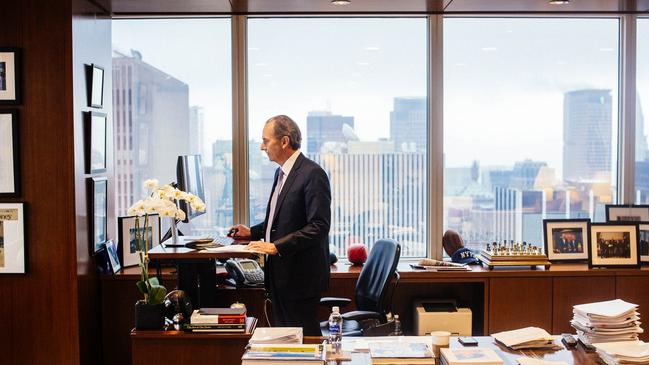
Australian James Gorman presided over a historic transformation at Morgan Stanley. He also played a small part in pop-music history.
Two decades ago, Mr Gorman was scrambling to find a last-minute entertainer to perform at a Merrill Lynch event in California. He turned to the young daughter of one of his brokers, Scott Swift.

Taylor Swift has done pretty well since her Merrill gig. So has Mr Gorman, a native of Australia who took over Morgan Stanley at its most fragile moment and remade the firm into a bank that is far more resilient and profitable.
On Friday US time, the 64-year-old executive announced he would step down in the next year, marking the end to a 13-year run.
Mr Gorman grew up middle-class in a Melbourne suburb with nine siblings. His mother was a nurse; his father an engineer. Around the dinner table, his parents discussed current events, seeding their children’s interest in global affairs and emphasising the importance of reading, Mr Gorman later told colleagues.
To pay for law school in Australia, Mr Gorman cleaned dormitory bathrooms, tended bar and worked Saturdays at a brokerage firm matching trade tickets. He spent four years at an Australian law firm.
In 1985, he enrolled at Columbia Business School. Mr Gorman, then 27, arrived in New York on a muggy summer day after 36 hours of flying via Auckland, Honolulu and Los Angeles. He moved into a room at the International House, a nonprofit student residence, and met young people from all over the world. It was his new American friends who left an impression.
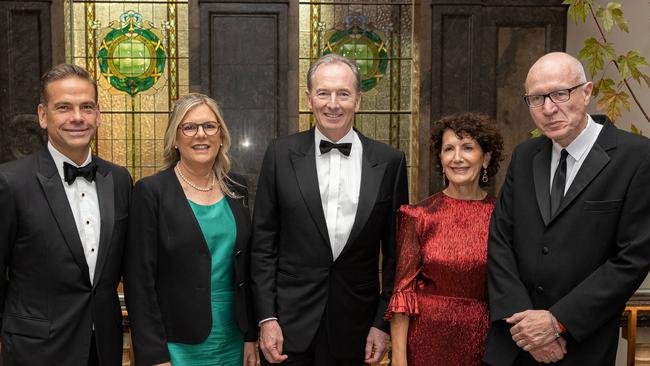
“The Yanks are incredible, loud, happy, friendly and buzzing with energy,” Mr Gorman wrote in an early letter home. “They ask questions in class continuously, many of them needlessly.”
The young man decided to adopt the customs of his new country and adjust his own style.
“As participation is graded, I’m forced to do the same,” he wrote to his family, referring to actively participating in class. “When in Rome, put your hand up,” he added.
Money was tight. After he bought a Hewlett Packard 12C calculator for $100 and spent $200 on books, he wrote to his parents that “my finances are riding a bit of a storm”.
Mr Gorman also took out a student loan at an interest rate of 24 per cent, an early experience with debt that he says came in handy later on.
“I was always short of money,” Mr Gorman later said. He called it “good practice for the financial crisis.”
Coming to the US from Australia was liberating; he once said he felt less defined by where he went to school. It didn’t hurt that his early years in the city coincided with a cultural moment for Aussie transplants. “Crocodile Dundee” was a smashing box-office success, and songs by Men At Work could be heard across American radio.
“It was,” he said years later, “a good time to be a single Australian in New York.”
After business school, Mr Gorman received job offers from investment banks including Morgan Stanley, but decided to join McKinsey & Co. Working in the consulting firm’s financial-services group, Mr Gorman advised companies including Merrill Lynch and American Express.
In 1999, Merrill chief executive David Komansky recruited Mr Gorman as head of marketing. Within two years, he was running Merrill’s enormous brokerage-firm division.
Mr Gorman joined Morgan Stanley in 2006. A disastrous 1997 merger with retail-brokerage Dean Witter Discover had sparked years of infighting.
Mr Gorman axed the lowest-performing advisers and combined trading systems. He called branch managers to introduce himself. The brokerage’s profit margins climbed.
In 2008, shoddy mortgage trades nearly brought down Morgan Stanley, forcing it to rein in riskier business and lean on steady producers like wealth management. Mr Gorman succeeded John Mack as CEO in 2010.
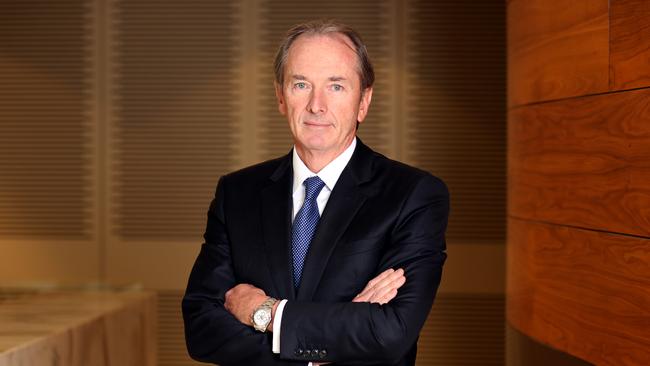
Mr Gorman insisted on calling himself James. He stuck to formal attire around the office, almost always preferring a tie and jacket, even as colleagues adopted a more relaxed dress code.
In a town hall with employees, he looked to the audience and joked that everyone must have sold their ties on eBay.
In recent years, Mr Gorman gained loyalty among staffers for a self-effacing personality and an eagerness to court clients. He loved golf but acknowledged he was little better than average. He could be formal in his interactions with colleagues, but he liked to greet them around the office.
While other chieftains like JPMorgan’s Jamie Dimon and Goldman Sachs’s Lloyd Blankfein made the rounds on CNBC to talk shop and offer their ideas for fixing America’s problems, Mr Gorman kept a lower profile.
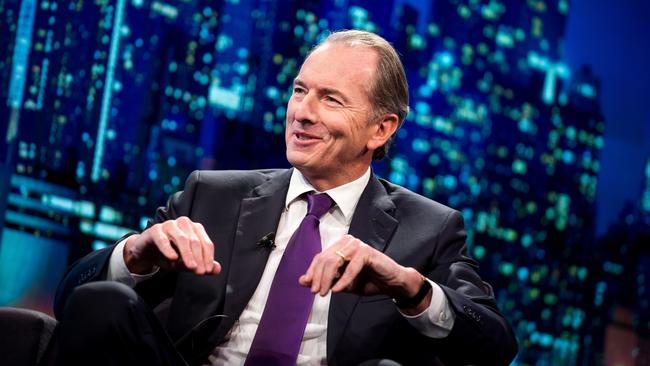
“Undoubtedly, being one of 10 kids gave him a head start in developing leadership skills and temperament,” Mr Blankfein, who’s now retired from Goldman, said of Mr Gorman on Friday.
Still, Mr Gorman became known to be exceedingly direct, advocating the “brutal” treatment of the securities industry’s least-productive brokers at a 2006 trade group speech or calling Morgan Stanley bankers “naive” in 2012 for complaining about their pay cuts in the postcrisis years.
That same year, with the stock price in the dumps, bank analyst Mike Mayo released a report saying that Morgan Stanley’s stock should go up or its CEO should be changed. About 30 minutes later, he had a missed call from Mr Gorman.
When Mr Mayo called him back, Mr Gorman started the call saying, “Well that wasn’t very nice,” according to Mr Mayo. Mr Mayo told him he thought the stock should go higher.
“So do I,” Mr Mayo recalled Mr Gorman saying. “Let me explain all the mess I have to deal with and how we’re going to get out of this.”
AnnaMaria Andriotis contributed to this article.
The Wall Street Journal

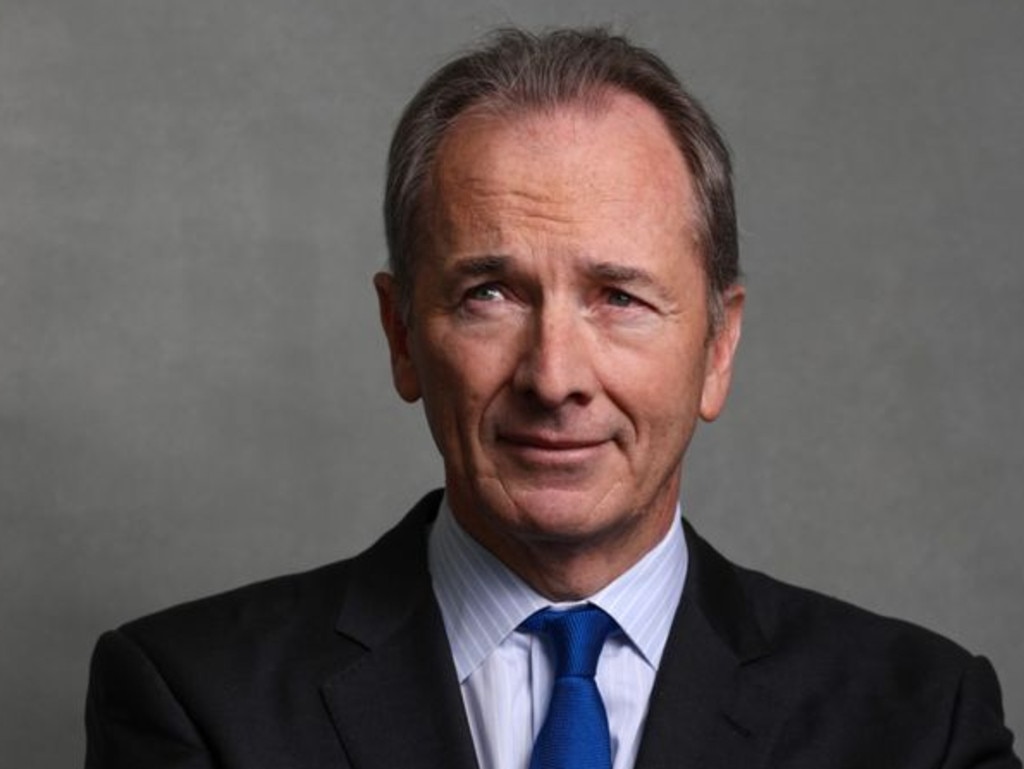




To join the conversation, please log in. Don't have an account? Register
Join the conversation, you are commenting as Logout